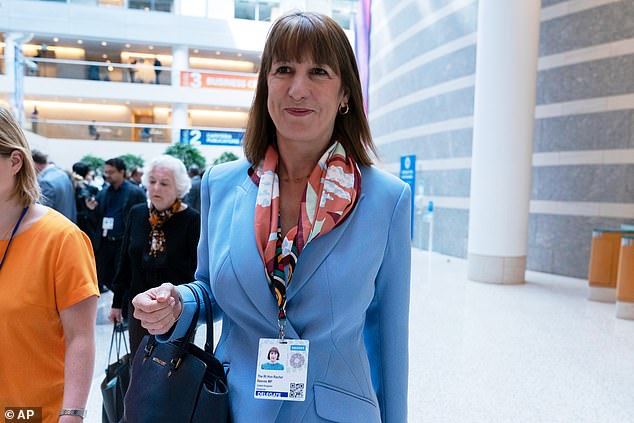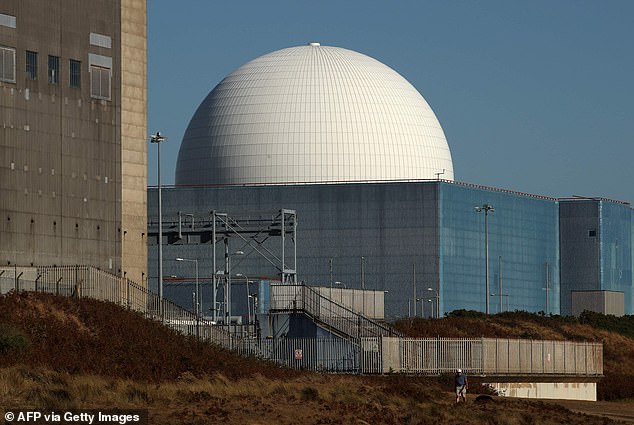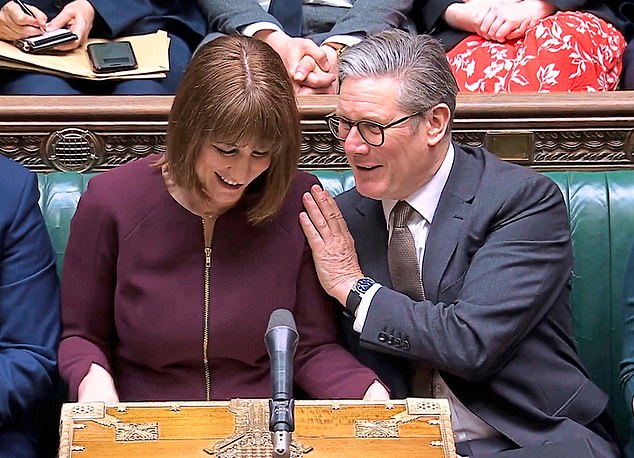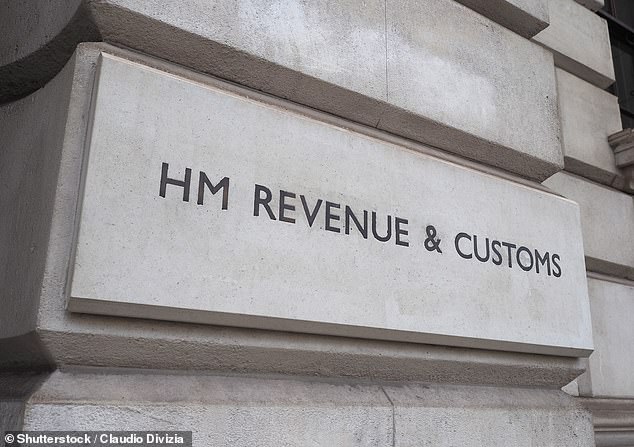As every football fan knows, the moment the club chairman is forced to quell rumours of the manager’s imminent demise by issuing a vote of confidence, the gaffer’s days are numbered.
And so, as Sir Keir Starmer approaches the end of his first year in power, his Chancellor Rachel Reeves looks like a dead woman walking.
Shortly after the New Year, the Prime Minister was asked if he had confidence in the woman at No 11.
‘Rachel Reeves is doing a fantastic job,’ he said. ‘She has my full confidence. She has the full confidence of the entire party.’
Pressed to confirm she would still be Chancellor by the time of the next General Election, however, he refused to be drawn.
And no wonder. Reeves has lurched from crisis to crisis in a year in which growth has stalled, unemployment has spiralled upwards and inflation has remained obstinately high.
She came to power vowing to ‘fix the foundations’ and boost economic growth but, one year on, she has signally failed to do either.

When Rachel Reeves attended the annual meeting of the IMF in April, she basked in the reception she was given in recognition of her status as the UK’s first woman Chancellor. Dressed in a powder-blue trouser suit, she sashayed along the mezzanine level overlooking the main floor of the IMF’s headquarters, writes Alex Brummer
During a period in which the Treasury has been beset by a series of storms, from President Trump’s shock tariff tactics to the conflagration in the Middle East, Reeves has proved to be anything but a steady hand on the tiller.
Her economic and political credibility began to evaporate as early as July 30, 2024 – less than a month after taking office – when she tried to give herself an alibi for making harsh decisions in the future by conjuring up a mythical £22 billion ‘black hole’ bequeathed to her by the Tories.
Incensed by this calumny, her Tory predecessor Jeremy Hunt responded by pointing out that her sums included a chunky £10 billion provision for gifting a range of public sector workers inflation-busting wage increases without the productivity deals needed to boost growth.
And, as the Government is now finding out, NHS and railway workers, teachers and others will always come back for more.
Cock-up followed conspiracy when – in a cackhanded attempt to balance the books – Reeves carelessly abolished winter fuel payments for pensioners. The decision left millions of elderly people shivering in their homes last winter and provoked a festering political row that led to Labour being pummelled on the doorsteps and in the polls in May’s local elections.
It belatedly forced the first of three screeching U-turns by the Prime Minister at an unfunded cost of £1.25 billion.
A little over three months into her reign, Reeves travelled to Washington, a city to which she was once briefly seconded by the Bank of England to work at the British Embassy.

Angela Rayner’s Employment Rights Bill is currently making its way through the Commons, becomes it becomes law. Once enacted, it will all but destroy opportunities for flexible working and price many part-time jobs out of the market, writes Alex Brummer
She was there to attend the annual meeting of the International Monetary Fund (IMF) and basked in the reception she was given in recognition of her status as the first woman to take on the role of UK Chancellor in 800 years.
Dressed in a powder-blue trouser suit, she sashayed along the mezzanine level overlooking the main floor of the IMF’s headquarters and even found time to pose for selfies with besuited officials and bankers.
But the Chancellor’s parade, days before she would deliver her ill-fated £40billion tax-raising Budget, was a badly misjudged display of bravado. For her first Budget on October 30 was a shocker.
The headline measure was a 1.25 percentage-point jump in employers’ National Insurance, which came into effect in April. It will add some £122billion to the tax burden of enterprise between now and 2029-30.
The idea that those with the broadest shoulders are best placed to cough up what is required to pay for the ballooning NHS and welfare bills is fine in socialist theory but, when it comes to the real world of commerce, it is a disaster.
And the NI rise was only the start. Companies are also having to cope with an increase in the national living wage for less well-off workers – once known as the minimum wage – rocketing fuel bills because of the Net Zero agenda and a new packaging tax on retailers.

The UK’s ninth richest billionaire, shipping tycoon John Fredriksen, is moving his businesses out of London after Labour’s nondom tax raid, saying: ‘Britain has gone to Hell’
All of this before Angela Rayner’s Employment Rights Bill, currently making its way through the Commons, becomes law. Once enacted, it will all but destroy opportunities for flexible working and price many part-time jobs out of the market.
The direct effect of Labour policies on firms, especially in the labour-intensive hospitality and retail sectors, is harsh enough. But it will be the indirect effect which will cause the most damage. The tax burden shattered business confidence which, in turn, is holding back new investment.
And companies have not been the only victims; individual wealth-creators have been hit hard, too. Labour’s soaking of the rich, through inheritance and capital gains tax changes, and the abolition of non-domiciled status – not to mention VAT on public school fees – has led to a mass exodus of millionaires from these shores, with 16,500 leaving or preparing to go.
And they include some of the biggest names in British business. On Friday, it emerged that the UK’s ninth richest billionaire, shipping tycoon John Fredriksen, is moving his businesses out of London after Labour’s non-dom tax raid, saying: ‘Britain has gone to Hell.’
Meanwhile, Richard Gnodde, the vice-chairman of Goldman Sachs and one of the City’s key rainmakers, has moved to Milan.

Earlier this month, the Government gave the go-ahead to the £14 billion Sizewell C power station after years of shilly-shallying, a move that is predicted to create 10,000 jobs
And this week I discovered that a leading businessman and philanthropist, who has long resisted the temptation to go into tax exile despite twice topping the list of British taxpayers, has finally thrown in the towel.
Instead of growth, there has been stagnation and Reeves’ claim to have combated this with four interest rates cuts since arriving at No 11 is simply nonsense. It is the independent Bank of England, not the Chancellor, which sets the interest rate.
And the rate cuts only highlight the way the economy has gone to rack and ruin with flatlining output and, as we have seen, rising inflation and surging unemployment.
Some 276,000 people have lost their jobs since October’s Budget, a statistic that revives memories of Saatchi & Saatchi’s memorable 1979 election campaign poster showing a snaking dole queue outside an unemployment benefits office above the slogan ‘Labour isn’t working’.
The self-styled ‘Iron Chancellor’ is trapped in a cage of her own making.
Starmer and Reeves thought they were being extremely clever when they enhanced the powers of the Tory-created Office of Budget Responsibility as part of their efforts to frame Labour as reliable guardians of the public finances.
But her new rules left her very little room to manoeuvre when it came to the Government’s day-to-day spending, with just £10 billion of ‘headroom’ – the contingency fund designed to cover emergency spending. That has, in the space of a year, twice evaporated amid slow growth and higher-than-forecast interest rates.
The political war over the massive £379 billion pensions and welfare budget – which culminated in Friday’s £1.5 billion U-turn – is a consequence of the Chancellor’s ill-judged grandstanding.
In contrast to their surefooted Labour predecessors Tony Blair and Gordon Brown, who arrived in Downing Street in 1997 knowing exactly what they planned to do in office, Starmer and Reeves have been all but bereft of ideas.
Take her belief that she could turbocharge growth by building 1.5 million new houses in Labour’s first term. A scattering of new planning officers and a limited building skills programme was never going to be enough to shift the dial when it came to Britain’s rampant nimbyism and shortage of home-grown brickies.
Indeed, Reeves’s October Budget piled on the agony for first-time buyers by restoring the starting price band for stamp duty to £125,000.

In contrast to their surefooted Labour predecessors Tony Blair and Gordon Brown, who arrived in Downing Street in 1997 knowing exactly what they planned to do in office, Sir Keir Starmer and Reeves have been all but bereft of ideas, writes Alex Brummer
Meanwhile, plans to empower pension funds to invest in Britain’s start-ups and infrastructure was purloined from her Tory predecessors.
As the nation waited for the tax sledgehammer to fall, business and consumer confidence plummeted, and a once resilient economy – which grew robustly in the first half of 2024 – slumped.
As the Bank of England noted this month, ‘business sentiment has continued to wane’ and ‘labour demand and firms’ hiring intentions softened in recent months’. It added that GDP growth, the total output of the economy, ‘appears to have remained weak’.
Labour inherited from the Tories a growing economy and inflation trending down to 2 per cent. The party’s foolhardy policies have snuffed out most of that.
The situation would not be so bad had the Starmer administration delivered the economic stability that business and the City yearned for after an admittedly chaotic era of Tory government.
Unfortunately, Starmer and Reeves have failed miserably on this count. The recent long-awaited public spending review was described by no less a figure than the outgoing director of the Institute for Fiscal Studies Paul Johnson as ‘baffling’.
After the NHS, welfare and – to a lesser extent – education had gobbled up most of the money, there was very little left for the rest of our public services. And buried among the hundreds of pages of small print was yet another U-turn that served as the perfect symbol of the chaos at the heart of government.
In July last year, Reeves quietly cancelled an £800 million super-computer project at Edinburgh University. Earlier this month, after a lost year, it was back as part of a push to make Britain a tech and AI powerhouse.

Disastrous growth figures mean HMRC will collect less tax income than planned, and rising unemployment and welfare benefit bills will impose a further strain on the public finances
Amid the gloom, there has been the odd chink of light, of course.
Earlier this month, the Government gave the go-ahead to the £14 billion Sizewell C power station after years of shilly-shallying, a move that is predicted to create 10,000 jobs. And the renewed commitment to nuclear is good for Rolls-Royce, too, as it won a competition to be the first company to try to build small modular nuclear reactors in the UK.
Both developments promise to be good for Britain, as it means the lights should stay on when the wind fails to blow.
Similarly, the Government has recognised the importance of creative industries, such as the film business, which had feared that tax breaks and direct support would vanish.
But as the country heads towards yet another Budget in the autumn, the omens are not good. The disastrous growth figures mean HMRC will collect less tax income than planned, and rising unemployment and welfare benefit bills will impose a further strain on the public finances.
These factors, coupled with the rising cost of servicing the national debt – now running at more than £100 billion a year – is fuelling City speculation that the Government will have to come back for more taxes, a move that would mean reneging on Reeves’s promise to the Confederation of British Industry, the business lobby group, at their annual conference last year.
Labour has trapped us all in a doom loop of ever higher taxes and welfare spending. Its hollow manifesto promises of growth and change lie in tatters.
Indeed, confidence in this Labour administration is so low in the bond markets, where the Government goes to borrow money, that the interest yield on UK Government bonds, known as gilts, is higher than it was when Liz Truss panicked the markets with her now notorious tax-cutting Mini Budget of September 2022.
If Starmer & Co can wreak such devastation in their first 12 months in power, it boggles the mind what they might do to the country over the remaining four years of their term.
Labour laid waste to the economy in the 1970s with its tax-and-spend agenda, and, as it adopts that policy anew, it can only spell disaster for Britain.












